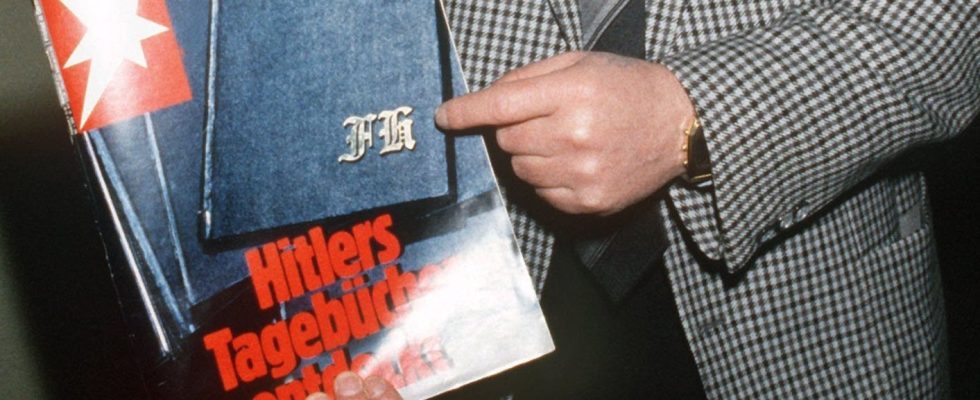Status: 04/24/2023 1:34 p.m
The publication of the forged “Hitler Diaries” in “Stern” in 1983 triggered one of the country’s biggest media scandals. Bertelsmann is now handing over the diaries to the Federal Archives.
40 years after the media scandal surrounding the fake Hitler diaries published in “Stern”, the Bertelsmann publishing house will hand them over to the Federal Archives. This was announced by the company and the Federal Archives. Due to their historical value, the 60 original issues are to be kept there permanently and made available for scientific analysis.
“Star” delayed delivery for years
On the 30th anniversary of the scandal, the “Stern” had already announced that the forgeries, which had been kept under lock and key for years, would be handed over to the Federal Archives. However, no concrete steps followed. Most recently, the media pressure for publication had increased significantly. So had the ARD-Broadcast “Reschke Television” the affair worked up again and the NDR had published the fake diaries on the internet.
Bertelsmann CEO Thomas Rabe now said: “We are pleased that the Federal Archives, which 40 years ago was able to prove beyond a doubt that the diary notebooks were forged, will now also take over their archiving.” For his company, it is a further “step in dealing with the company’s history in a way that is geared towards transparency, scientific research and independence”. The sources would now be “professionally” secured.
One of the biggest media affairs
The publication of the alleged Hitler diaries is considered one of the biggest media affairs in German history. The “Stern” presented the details of the alleged historical sensation on April 25, 1983 at a press conference.
Just a few days later, experts exposed the booklets as post-war forgeries. The credibility of the “Stern” suffered badly, leading employees had to go.
“Brazen attempt to humanize crime”
“The forged ‘Hitler Diaries’ are in good hands in the Federal Archives as they are peculiar testimonies to contemporary history in the Federal Republic of Germany,” said Michael Hollmann, President of the Archives. “They show a brazen attempt to give the brutal crimes of National Socialism a human touch that resonated with society in the 1980s.” After being handed over by the publisher, they would be kept permanently at the Koblenz site.
The alleged Hitler diaries had been sold to a “Stern” reporter under a false name by the forger Konrad Kujau for millions. Before publication, “Stern” did not have them checked carefully enough. Kujau was later sentenced to four and a half years in prison for fraud.
The Bertelsmann Group, to which Stern belongs, has had the history of the magazine independently reviewed by the Munich Institute for Contemporary History since last year. It is actually about the work of “Stern” founder Henri Nannen between 1948 and 1983 as well as personal and content-related interdependencies with the Nazi era. The research assignment was later expanded to include the episode of the Hitler diaries.

